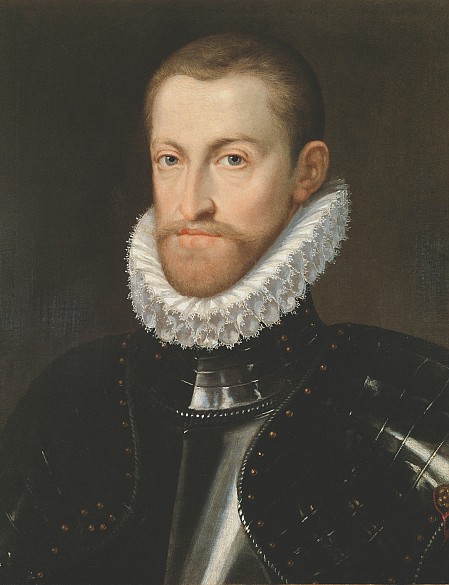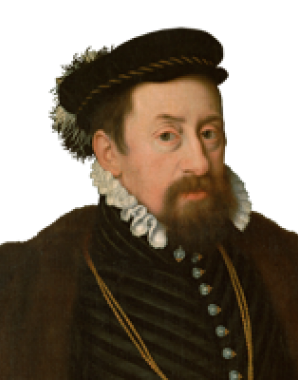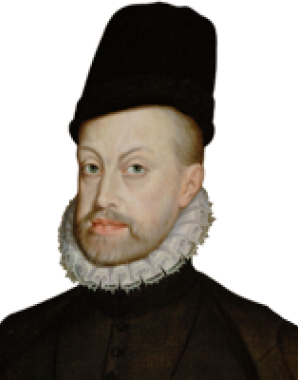Rudolf II and his socialization as a ruler
Born in 1552, Rudolf was the third child of Emperor Maximilian II and Infanta Maria of Spain. An elder brother named Ferdinand (b. 1551) having died in infancy, Rudolf, as the eldest surviving son, grew into the role of heir to the throne.
At first Rudolf grew up in Vienna surrounded by an ever-increasing horde of siblings. Then in 1563, at the age of eleven, he was sent to live with his uncle King Phillip II at the Spanish court. At that time Spain was a global power, and the Spanish court set the tone in matters of lifestyle and culture. The ulterior motive, however, was to remove the young archduke from the influence of his father, who was known for his extremely tolerant views in religious matters. Rudolf was to be educated in an environment of Catholic orthodoxy, shielded from the Protestant currents that had taken increasing hold in Central Europe. The young archduke was to be the future supreme ruler of the Holy Roman Empire, and in the eyes of Spain, the main line of the dynasty, it was imperative that he should be brought up and educated in accordance with the concept of universal Habsburg power under the banner of Catholicism that had been the dynasty’s mission since the reign of Charles V.
Having been educated along these lines Rudolf returned to Central Europe as a self-assured prince of the dynasty. His Spanish upbringing had brought him into contact with traditional Mediterranean Catholicism that was unaffected by the ideas of the Reformation. It was however the political component of the religion that was at the forefront of his thinking, as he understood Catholicism first and foremost as an instrument for buttressing a monarch’s power. As an individual he was not especially noted for his excessive piety.
In 1572 he was elected by the Estates as his father’s successor on the throne of Hungary, and in 1575 recognized as king of Bohemia. The same year Rudolf was confirmed by the electors in Regensburg as successor to his father in the Empire. Only a few months later in 1576 Maximilian II died suddenly. Aged twenty-four, Rudolf was now a ruler who saw his role as that of mediator between extremes, both in the Empire as well as in his patrimonial dominions.
In 1583 the imperial court was moved from Vienna to Prague, which was now to be expanded as a magnificent residence. The young emperor was regarded as highly cultivated, talented and promising but also wholly imbued with the concept of imperial dignity, the clearest manifestation of his socialization at the Spanish court. During the first decades of his reign Rudolf skilfully pursued the systematic extension of his sovereign rights.
However, the dark sides to his character soon manifested themselves. The emperor was at times inconsistent and lacked the conviction of his decisions. Phases of manic activity were followed by spells of total apathy.














